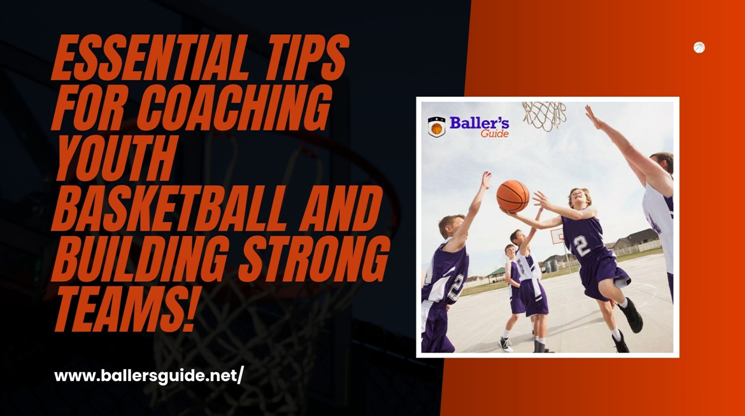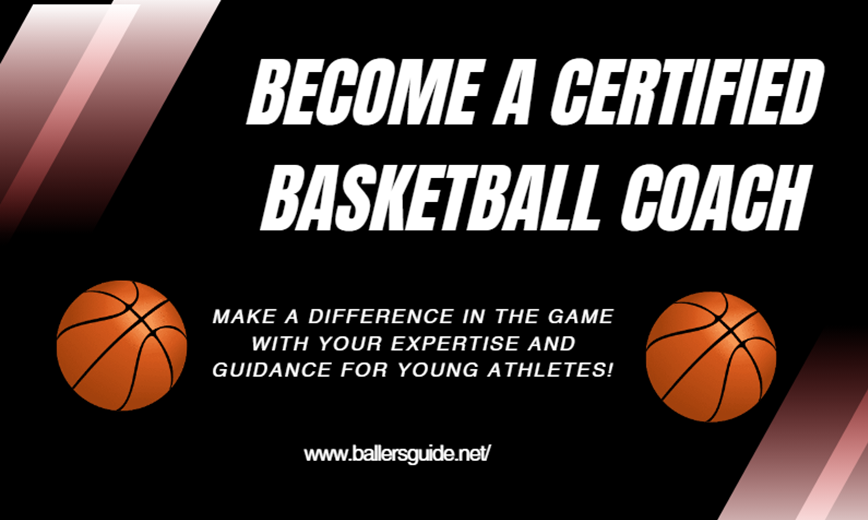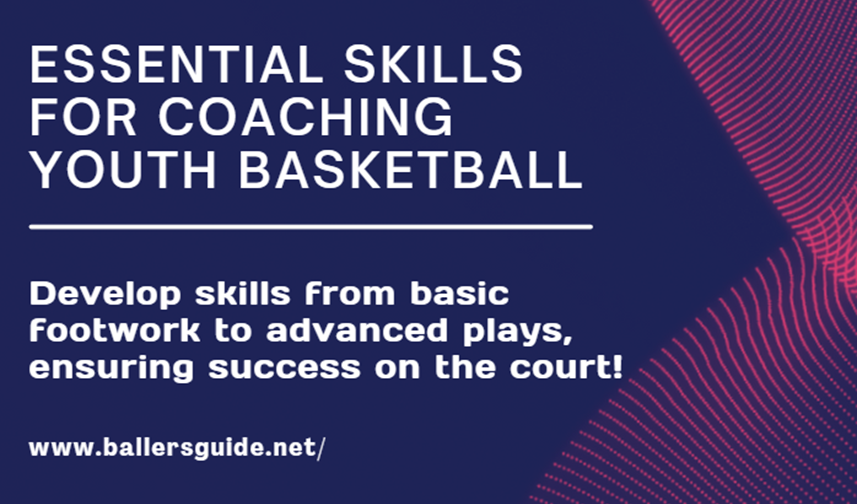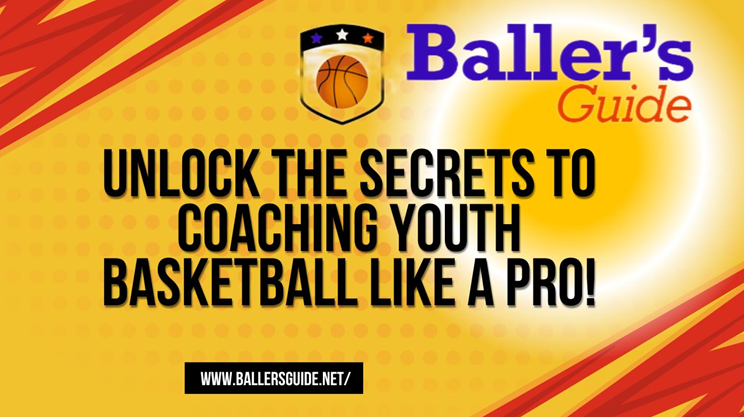Coaching youth basketball is a great way to get involved in the game and make a positive impact on young players. Whether you’re a parent wanting to help your child’s team or someone interested in coaching, there are many opportunities at different levels, from preschool all the way to college.
To coach youth basketball, you don’t need to be an expert, but it helps to know the basics of the game and some coaching skills. If you’re just coaching for a season or two, understanding simple things like safety and how to teach offense and defense will be enough.
But if you want to take coaching seriously and help players develop their skills, it’s a good idea to become a licensed coach through USA Basketball. This training will give you the tools you need to be a better coach and help young players grow both in basketball and in life.

Table of Contents
- 1 What Are the Benefits of Becoming a Licensed and Accredited Coach?
- 2 How to Become a Licensed Basketball Coach
- 3 What Are the Benefits of Enrolling in a Coach’s Academy?
- 4 What If I Want to Coach in the NCAA, NAIA, or Another College League?
- 5 Essential Skills to Teach When Coaching Youth Basketball
- 6 FREQUENTLY ASK QUESTIONS
- 6.0.0.1 What qualifications do I need to become a youth basketball coach?
- 6.0.0.2 What are the benefits of becoming a licensed basketball coach?
- 6.0.0.3 How do I become a licensed youth basketball coach?
- 6.0.0.4 What is the USA Basketball Coach Academy?
- 6.0.0.5 Do I need a separate license to coach at the collegiate level?
- 6.0.0.6 What key skills should I focus on when coaching youth basketball?
- 7 Are You Ready to Begin Coaching Today?
What Are the Benefits of Becoming a Licensed and Accredited Coach?
Many youth basketball programs and schools now require coaches to be licensed and accredited before they can start coaching kids. This includes even volunteer roles. By getting the right accreditation, you can become a part of local programs and help kids learn the game of basketball.
USA Basketball provides two different coaching accreditation opportunities. You can either become a Gold coach or an Associate coach. Each has different benefits. Here’s what you get when you become an accredited coach:
Benefits of Becoming an Accredited Coach:
- Recognition: You’ll be affiliated with a well-known and respected basketball organization.
- Safety Education: You’ll receive materials that help you keep kids safe while they play.
- Coaching Guidebook: You’ll have a guide to help you learn the basics of coaching basketball.
- License Card: You’ll get a coaching card that confirms your official status and accreditation.
- Resources: You’ll have access to coaching tools and resources that are specifically helpful for coaching youth players.
- Insurance: You’ll have access to team and event insurance, including general liability insurance for your coaching activities.
Liability insurance is especially important. If a player gets hurt after following your instructions, their parents might file a lawsuit. Having insurance can protect you financially in such situations.
In some states, like Washington and Alaska, coaching may be considered an independent contractor job. In those cases, you’d need proof of insurance to start coaching.
Benefits of Becoming a Gold-Level Coach:
- All the benefits of an accredited coach: You’ll enjoy everything an associate coach gets, plus more.
- Gold License Card: You’ll receive a Gold-level coaching card.
- Premium Content: You’ll have access to exclusive resources and materials.
- Priority Support: Your requests will be given priority by USA Basketball.
By becoming a licensed and accredited coach, you not only gain credibility but also ensure you’re ready to support your players and protect yourself in the process.
How to Become a Licensed Basketball Coach

Becoming a basketball coach through USA Basketball is a straightforward process. Here’s a simple step-by-step guide to get started:
Step 1: Pass a Background Check
Before you can begin coaching, you need to pass a background check. This is a standard requirement for most parks and recreation basketball leagues. For national accreditation, both local and national background checks are needed, and the cost is typically paid by the coach.
Step 2: Register as a Coach
Once your background check is complete, create an account on the USA Basketball website and register as a coach. During registration, you’ll choose the type of license you want, either Gold or Associate.
Step 3: Complete the Required Courses
To earn your coaching license, you’ll need to take specific courses designed to meet the program’s requirements. These courses cover important topics like safety, coaching techniques, and player development. Most of these programs, including USA Basketball’s, can be completed online.
Step 4: Get Licensed
Once your background check is approved and you’ve completed the courses, you’ll be granted your coaching license. This license is valid for the entire basketball season, which runs from August 31 to August 30 the following year. Keep in mind; you’ll need to renew it annually to continue coaching.
By following these steps, you’ll be ready to start coaching youth basketball and make a positive impact on young players.
Becoming a basketball coach through USA Basketball is a straightforward process. Here’s a simple step-by-step guide to get started:
Step 1: Pass a Background Check
Before you can begin coaching, you need to pass a background check. This is a standard requirement for most parks and recreation basketball leagues. For national accreditation, both local and national background checks are needed, and the cost is typically paid by the coach.
Step 2: Register as a Coach
Once your background check is complete, create an account on the USA Basketball website and register as a coach. During registration, you’ll choose the type of license you want, either Gold or Associate.
Step 3: Complete the Required Courses
To earn your coaching license, you’ll need to take specific courses designed to meet the program’s requirements. These courses cover important topics like safety, coaching techniques, and player development. Most of these programs, including USA Basketball’s, can be completed online.
Step 4: Get Licensed
Once your background check is approved and you’ve completed the courses, you’ll be granted your coaching license. This license is valid for the entire basketball season, which runs from August 31 to August 30 the following year. Keep in mind; you’ll need to renew it annually to continue coaching.
By following these steps, you’ll be ready to start coaching youth basketball and make a positive impact on young players.
What Are the Benefits of Enrolling in a Coach’s Academy?
Enrolling in a coach’s academy can be a great way to gain hands-on experience and learn what it takes to coach youth basketball effectively. These programs often let you practice coaching in real-life game situations, which is invaluable if you’re serious about becoming a great coach.
USA Basketball Coach Academy
One of the best coaching academies in the United States is the USA Basketball Coach Academy. It’s a program that is sponsored by Nike and provides live training sessions for coaches. This allows you to:
- Learn valuable techniques for teaching, reading, and playing the game.
- Gain hands-on experience with a curriculum designed to be practical and meaningful.
- Interact with guest coaches who share strategies for success both on and off the court.
The academy doesn’t just focus on basketball skills; it also emphasizes life lessons that players can carry with them forever.
Key Things to Know Before Enrolling
Before you join any coach’s academy, check whether it offers accreditation or licensure upon completion. Some programs require you to seek accreditation through a separate organization after training.
For a seamless experience, choose a program like the USA Basketball Coach Academy, which combines training with the necessary credentials to start coaching.
By enrolling in a coach’s academy, you’ll build the skills and confidence to become an impactful youth basketball coach while making a difference in players’ lives.
What If I Want to Coach in the NCAA, NAIA, or Another College League?
Coaching college basketball, whether in the NCAA, NAIA, or another collegiate league, is a bit different from youth coaching. To start, your credentials and learning process need approval from the NCAA Enforcement Certification and Approvals Group (ECAG).
The NCAA has approved the Gold Licensing Program through USA Basketball as an authorized provider of accreditation for collegiate sports.
Key Steps to Coaching College Basketball:
- Complete a Separate Background Check: Even if you’ve passed a background check for youth coaching, collegiate coaching requires a new screening. Some states or counties in the US also have pass-through feesthat need to be paid as part of the screening process.
- Follow the ECAG Guidelines: Along with obtaining the Gold License, you’ll need to follow the detailed steps outlined in the ECAG user manual.
- Complete Required Training: Similar to youth coaching, you’ll need to finish safety and organizational courses. However, collegiate programs often have additional requirements to prepare you for the higher level of play.
Though the path to becoming a college basketball coach is more demanding, it equips you with the skills to teach the game at a higher level. The effort is worth it if you’re passionate about guiding players toward their full potential in a competitive environment.
Essential Skills to Teach When Coaching Youth Basketball

As a youth basketball coach, it’s vital to start with the basics, regardless of your team’s age or skill level. Until you’ve assessed your players, assume they all need to learn the fundamentals. Building a solid foundation ensures players develop properly and succeed on the court.
Here’s a breakdown of the key skills to teach, categorized into three levels based on general age groups. Remember, these are guidelines, skill levels may vary, and it’s up to you to evaluate each player.
Level 1 Skills: Generally Ages 7-10.
At this level, you’re teaching kids the very basics of basketball. You’re going to be practicing layups with two hands. The goal should be to use their strong and weak hands equally to make baskets. You’ll also want to teach proper jumping techniques, like jumping from the dominate foot or taking off with the correct foot on a layup. You’ll also be teaching basic passing, dribbling, and footwork skills. Defensive stances, shooting form, and conceptual drills are also important at this level.
Level 2 Skills: Generally Ages 10-12.
At this level, kids are more advanced with their skills in the game. That means your role is to help them become progressively better. You’ll be showing them how to make different cuts. You’ll be forming more advanced plays that can be run on the court. Offensive moves, defensive positioning, and advanced passing techniques are also part of this level. It’s also a good opportunity to begin teaching full-court pressing, man-to-man defenses, and good ball-handling decisions.
Level 3 Skills: Generally Ages 12+.
At this level, you’re going to want all offensive drills to be contested. You’re going to want to run several defensive drills, both zone and man-to-man. You’ll be introducing more than just a basic 2-3 zone as well, adding ideas like the Box-and-1. Really emphasize shooting form and what it means to take a good shot. Add screens to offensive plays, drill box-out rebounding techniques, and focus on spacing for offensive and defensive sets. There is much more motion added to the offense at this level so far.
Why Fundamentals Always Matter
Even at higher levels, like collegiate basketball, practices often start with Level 1 fundamentals. Without mastering the basics, players may struggle during games. As a coach, ensure your players are confident with these skills to build their success.
Practice Plans for Skill Development
That means you’ll need to create practice plans for your youth athletes, no matter what their age may be, so you can evaluate their skills. It helps you evaluate and improve your team’s skills.
By focusing on fundamentals and tailoring your approach to your team’s needs, you’ll build a strong foundation for your players to thrive on and off the court.
Teaching Life Skills Through Basketball
Have you ever heard the term “coachable”? It means a child has certain traits that make them willing to listen, learn, and improve. While older kids might sometimes be less open to feedback, most young players in basketball programs can be coached effectively if approached the right way.
As a coach, here are key traits to look for and nurture in your players to help them grow both on and off the court.
- Embrace Teamwork: Basketball has moments for individual brilliance, but it’s mostly about working together as a team. Players need to understand they can’t do everything alone. A positive team attitude allows them to learn and grow. Without this mindset, it’s challenging to teach them the skills they need to succeed.
- Set Clear Goals: Every player should have a specific goal in mind, whether it’s improving their jump shot, defensive skills, or overall game. Basketball is more than just winning games; it’s about setting and achieving goals, which are lessons they can carry into life.
- Accept Uncertainty: In basketball, there will be moments when players need to pass the ball or make decisions that are not entirely in their control. For example, passing to an open teammate instead of taking a contested shot can improve the team’s scoring chances by 67%. Teaching kids to accept these uncertainties helps them become better players and teammates.
- Build Trust: Players and their parents put their trust in you as their coach, and players must also trust their teammates. Without trust, kids may try to handle everything themselves. Encourage faith in the process, even if it means losing a few games. The lessons learned from these experiences are far more valuable than the win-loss record.
- Consistent, Competitive, and Humble: Kids often mirror their coach’s personality and behavior. That’s why it’s crucial to be consistent, competitive, and humble. Your actions set the tone for how your team behaves on and off the court.
Anyone can coach youth basketball, but being a great coach requires focus on teamwork, goal-setting, trust, and leading by example. By emphasizing these values, you’re not just coaching basketball, you’re teaching life skills that will benefit your players long after the season ends.
Essential Equipment Tips for Youth Basketball Coaches
When coaching youth basketball, players usually come dressed for practices or games. However, as a coach, it’s your responsibility to ensure they’re wearing the right gear. Here are some important points to consider:
How does the clothing fit? Basketball is a game of motion and agility. Players need to be able to move as efficiently as possible. This means all shirts, basketball shorts, shoes, and undergarments must be properly fitted to their body type and size. Not every family can afford the best basketball gear, but it is your job as the coach to communicate basic fitting expectations for the gear that can be provided.
How does the clothing function? Different kids have different styles that they like to express on the court. This may include compression sleeves, basketball knee sleeves and braces, ankle supports, and other undergarments, tights, and support equipment. Since lots of pro players wear functional items, kids think they need to wear them as well. You may need to limit non-essential items so that your team can focus on the game instead of the arm sleeve that keeps falling down.
How safe is the equipment? Up to 30% of kids will experience at least one injury to the face or the head over the course of a playing season. This means one of the most essential pieces of gear that your players can have is a mouthguard. Although you and I may not have worn them while playing basketball, it is recommended for all players at every age level to wear one today. If you get any sponsorship money for your team, consider investing into a high quality mouthguard for your players like this one: Click here to compare pricing on Amazon and get an awesome deal.
As a coach, your role includes guiding players and families on the right equipment choices. Ensuring proper fit, functionality, and safety will not only improve performance but also help keep your players safe and focused on the game.
FREQUENTLY ASK QUESTIONS

What qualifications do I need to become a youth basketball coach?
To coach youth basketball, you don’t need to be an expert, but understanding the basics of the game is important. Becoming a licensed coach through USA Basketball can help you gain the necessary tools and skills to coach effectively.
What are the benefits of becoming a licensed basketball coach?
As a licensed coach, you’ll gain recognition from a respected basketball organization, have access to safety education materials, a coaching guidebook, insurance coverage, and additional resources that help you coach youth players effectively.
How do I become a licensed youth basketball coach?
To become a licensed coach, you need to pass a background check, register on the USA Basketball website, complete required courses, and earn your coaching license, which is valid for one season.
What is the USA Basketball Coach Academy?
The USA Basketball Coach Academy is a training program that provides live coaching sessions and hands-on experience. It helps coaches learn techniques and strategies to teach basketball, while also providing life lessons for players.
Do I need a separate license to coach at the collegiate level?
Yes, coaching at the NCAA, NAIA, or another collegiate league requires a separate background check and certification, and you need to follow the guidelines provided by the NCAA Enforcement Certification and Approvals Group.
What key skills should I focus on when coaching youth basketball?
Key skills include teaching basic basketball fundamentals such as passing, dribbling, shooting, defense, and teamwork. For older kids, you can focus on advanced skills like offensive plays, defensive positioning, and game strategies.
Are You Ready to Begin Coaching Today?

Coaching youth basketball is more than just teaching kids how to play the game, it’s about helping them develop valuable life skills, build confidence, and foster teamwork. Whether you’re coaching your child’s team or stepping into this role for the first time, the journey is as rewarding as it is challenging.
Not every program requires licensure and accreditation, but it may be a useful process to consider for all coaches. By investing in proper training and following the recommended steps, you can set yourself up for success and create a positive, impactful environment for your players.
Start your coaching journey today, and with dedication, you’ll not only help your team succeed on the court but also inspire them to carry these lessons into every aspect of their lives.
